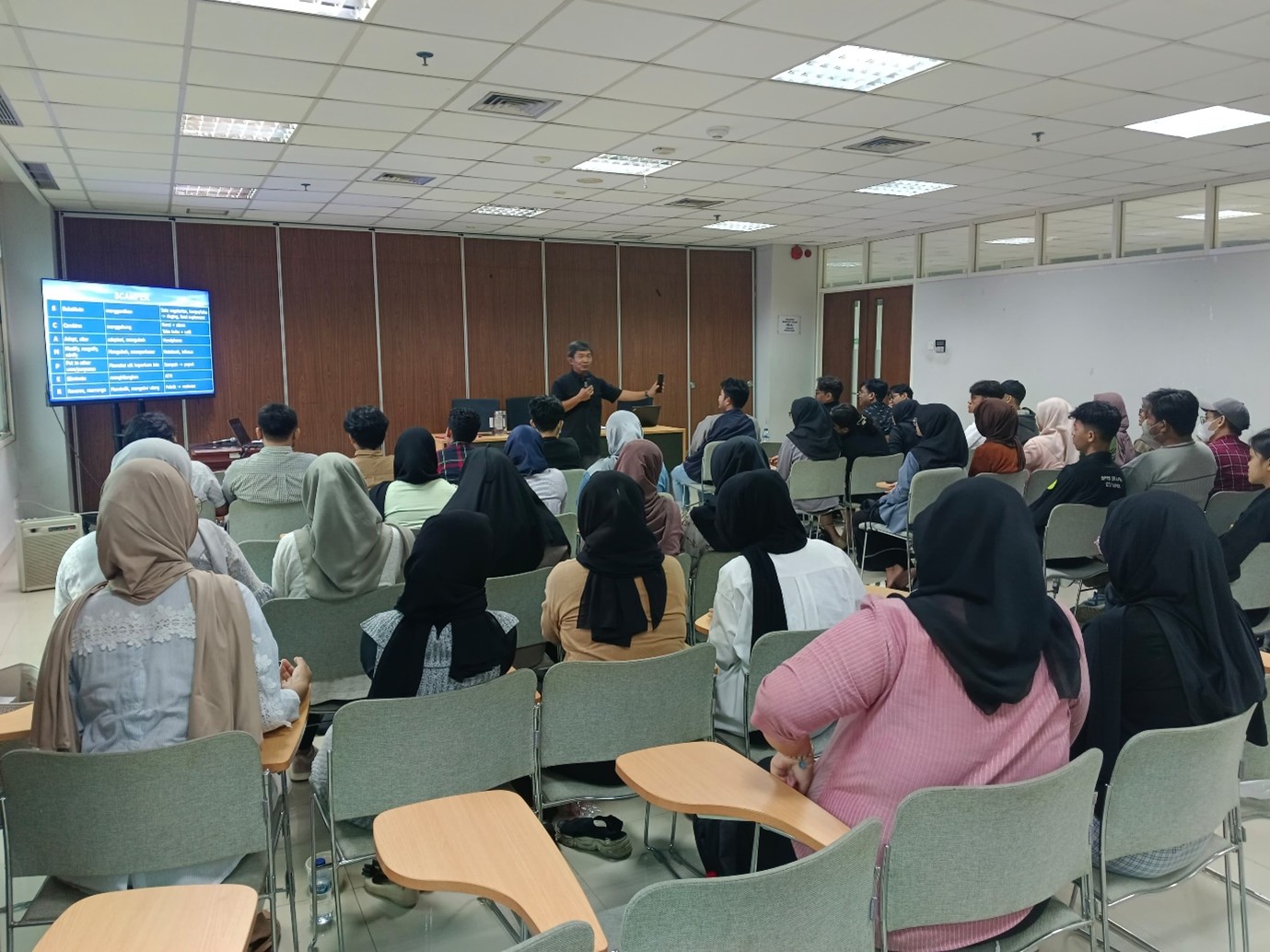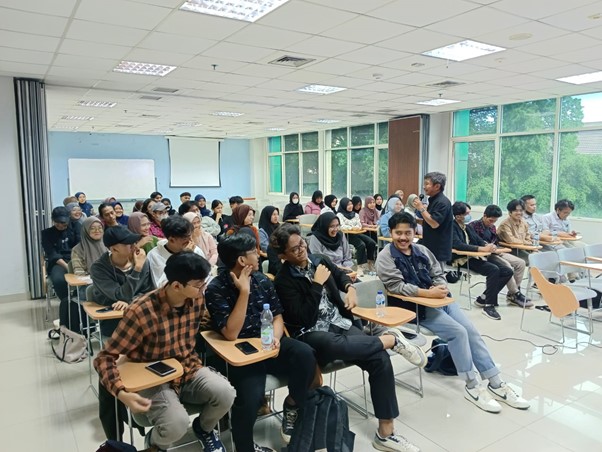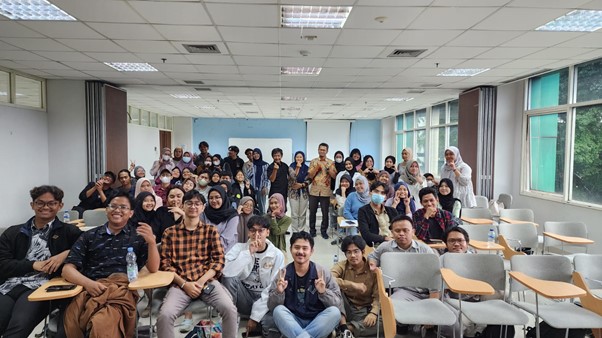
The Internship Training in Physics organized by the Physics Study Program of Universitas Negeri Jakarta on March 2, 2024, took place in Room 303 of the Hasyim Asy’ari Building, Faculty of Mathematics and Natural Sciences, UNJ. The event was attended by all students of the 2021 cohort, totaling approximately 70 students, who are currently undergoing internship training in their 120th semester. The training session was attended and inaugurated by Dr. Umiatin, M.Si., as the Coordinator of the Physics Study Program, FMIPA UNJ. The internship training activities comprised an opening session, a presentation of materials by Dr. Anggara Budi Susila, M.Si., moderated by Syafrima Wahyu, M.Si., followed by a discussion session and closing remarks.

The Internship/Practical Work Experience (PKL) activities included in the Physics Study Program Curriculum, FMIPA UNJ, have several objectives, including:
- Application of Physics Concepts to the Real World: Internships allow Physics students at UNJ to apply theoretical concepts learned in class to real-world contexts. They can observe how principles of physics are utilized in various fields such as technology, industry, or research.
- Development of Practical Skills: Through internships, students can develop practical skills relevant to the field of physics, such as data processing, experimental testing, or the use of simulation software. This helps them to be better prepared for entering the workforce or continuing further studies at higher levels.
- Research Experience: For students interested in research careers in physics, internships can provide direct experience in conducting scientific research. They can work alongside faculty members or researchers in research institutions to deepen their understanding of research methods and the scientific discovery process.
- Industry Exposure: Internships also provide opportunities for UNJ physics students to become acquainted with various industries that employ physics experts. They can learn about the application of physics in technology, energy, medicine, or other fields, expanding their awareness of career opportunities beyond academia.
- Professional Networking: During internships, students can build relationships with professionals in the field of physics, including professors, researchers, or industry practitioners. This can help them gain career advice, job opportunities, or even job offers upon graduation.
In addition, students are provided with materials on Critical Thinking and Problem Solving to support their soft skills during internships at their respective institutions. The urgency of these materials in the internship context includes:
- Problem Analysis: During internships, students are often faced with various problems or challenges that require critical thinking to solve. The ability to carefully analyze problems, identify their root causes, and evaluate various alternative solutions is crucial in helping them complete tasks assigned during their internships.
- Finding Innovative Solutions: Internships often involve projects or tasks that require innovative solutions. By using critical thinking, students can view problems from various perspectives and create creative and effective solutions. They need to critically think about new ways to overcome obstacles or improve existing processes.
- Making Informed Decisions: Internship students are often faced with situations where they must make important decisions. By using critical thinking, they can evaluate various relevant factors, consider the consequences of each option, and ultimately make the most appropriate decision for the situation they face.
- Supporting Innovation and Continuous Improvement: In the internship environment, it is important not only to complete assigned tasks but also to identify opportunities for innovation and continuous improvement. By using critical thinking and problem solving, students can help the company or organization where they intern to improve their processes, products, or services.
- Becoming Competent Professionals: Students who can demonstrate skills in critical thinking and problem solving are often considered more valuable by supervisors in their internships. These abilities demonstrate that they can think independently, face challenges with confidence, and make meaningful contributions to the team or organization where they work.
Thus, the urgency of critical thinking and problem solving in internship activities not only helps students complete their tasks more effectively but also prepares them to enter the workforce with highly valuable skills appreciated by leaders.
